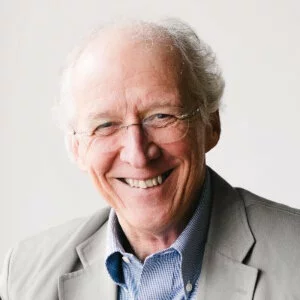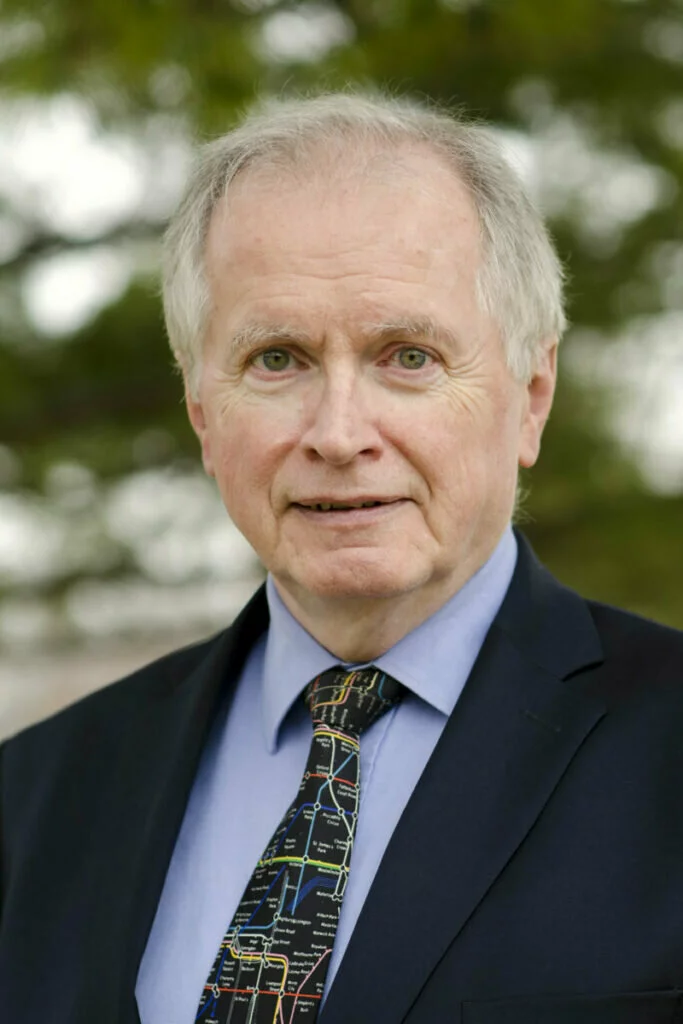a report live-blogged by Andy Naselli
Here is the schedule as advertised:
- 7:00pm | Introductions
- 7:10pm | Piper Talk
- 8:10pm | Carson talk
- 9:10pm | Break
- 9:20pm | Audience discussion
- 10:00pm | Conclusion
Part 1: John Piper: The Pastor as Scholar
 A manuscript of Piper’s manuscript is already available here on the Desiring God website.
A manuscript of Piper’s manuscript is already available here on the Desiring God website.
Piper is going to approach this by sharing seven chapters of his life. He suggests that this is a rather “American” soul-baring approach and perhaps unlike the deadly church-hurting and gospel-harming approach of most scholars (e.g., as reflected in a quotation by the outstanding evangelical scholar F. F. Bruce). Piper is fully on board with Jonathan Edwards on this, namely, that he considers it his duty to raise the affections of his hearers. This, Piper argues, is the way Paul himself did it: he exposed himself repeatedly.
Piper is not sure if he qualifies as a scholar, so he’s going to share his story.
Chapter 1: Early Youth
- When Piper was six years old, he put his faith in Jesus Christ as his Savior. His father, Bill, was an itinerant evangelist and had a huge influence on John’s life.
- John was convinced that he would not be a preacher like his dad. From about the sixth grade until age twenty-one, John could not speak in front of a group. It was a physiological paralysis.
- There was no vision for scholarship in the Piper home. It wasn’t even a category. His father was not that kind of stimulus for him.
Chapter 2: High School
- This story becomes progressively important.
- Piper grew intellectually and emotionally in high school. Geometry and biology proved enormously important in shaping him; it was an intellectual awakening for him. He loved reasoning rightly from right premises to right conclusions. He has an eye for non sequitur.
- Biology was like a text in hermeneutics. When Piper studied in Germany, he learned the importance of careful observation of the text.
- Piper also had a passion to write and a bent toward poetry. This happened in the eleventh grade. Every day of his life since then he has written: notes, journals, blog posts, essays, sermons, manuscripts. Piper cannot do thinking without writing. As Calvin said, “I learn as I write, and I write as I learn.” Writing also functions as a way of feeling and expressing feelings. Poetry is a way of awakening things in people that wouldn’t have been awakened any other way.
- Piper’s inability to speak in front of a group cut him off in many ways (e.g., running for class offices, refusing to do oral book reports).
- Piper reads and read no faster than he can talk. That’s a disability. “Your dealing with an unbelievably unequipped unscholarly brain.”
Chapter 3: Wheaton College
- Wheaton College fanned the flame of Piper’s writing. Wheaton College and Fuller Seminary were like forms and substance respectively; i.e., it was not until seminary that the Bible was the object of Piper’s passionate study.
- A few Wheaton professors were massively influential to Piper. For example, they taught him how to have a worldview; the life of the mind could be a vocation; the law of non-contradiction (e.g., any system that denies truth denies itself).
- Francis Schaeffer showed up in 1965 and blew Piper out of the water.
- Piper’s classmates (including Mark Noll) were both good and bad influences on Piper. They could read thirty times faster than Piper and remember what they read. Piper felt overwhelming less gifted than people like Mark Noll. Piper was a B-student even though he worked hard; he wanted an A so badly, but he couldn’t make As at Wheaton, and he couldn’t talk in front of people.
- Piper reads slowly, but he reads carefully. He doesn’t just fly over the orchard. “I feel what I read. . . . I pick fruit and I pause and I eat it.” As a literature major, Piper took every poetry class offered and skipped all the classes on novels because they take forever to read.
[I’m not live-blogging the rest of this talk in detail because a manuscript of Piper’s manuscript just became available HERE on the Desiring God website.]
- C. S. Lewis freed Piper from the tyranny from the novel.
Chapter 4: Fuller Seminary
- “I was immature—I was foolish because I was not attached to a local church.” In Pasadena, Piper went to Lake Avenue Church where Ray Ortlund Sr. was loving his people like Piper had never seen.
- George Ladd (a NT prof at Fuller) was almost suicidal because he felt that a liberal scholar from the University of Chicago had destroyed his career with a negative book review of one of Ladd’s books.
- Dan Fuller influenced Piper theologically more than any other single person.
Chapter 5: Doctoral Studies at the University of Munich
- Piper studied with Leonard Goeppelt in Germany and saw a sort of scholarship that was everything he did not want to be. They were insubordinate to the Bible. Piper saw through their arguments by using logic that he had learned in tenth grade geometry class!
- Piper received his diploma in the mail in a black tube. He opened it to make sure that it was real and then put it back. He put it in a drawer and has never opened it again.
Chapter 6: Bethel College
- While Piper was studying Romans 9 on sabbatical, the Lord said through those words, “I will be proclaimed and not just analyzed or explained.”
- His burning desire was to be a pastor, and he has never written a scholarly book or article since. He says that he is not on the cutting edge of any discipline at all.
Chapter 7: Bethlehem Baptist Church
- Piper is not a reader. This morning Tim Keller said that Don Carson will write more books this year than most people will read. Piper’s response was, “Duh.”
- Almost everything Piper has written in the last thirty years is sermons.
- Piper is devoted to studying the greatest object of knowledge, i.e., God, who has revealed himself authoritatively in a book. Piper works with his whole being to know him through that book and to make him known. That is what every pastor should do.
Part 2: D. A. Carson: The Scholar as Pastor
 Introduction
Introduction
- “The pastor as scholar and the scholar as pastor”: The title itself is ambiguous. Scholar is a title that one would not normally use of oneself but one that others would use of you. Better: “the pastor as academic and the academic as pastor.” But that’s a different question. The discussion is quite complicated. In North America “scholar” can refer to an academic role or to a degree of competence in one’s field.
- God assigns hugely different gifts. This evening must not give the impression that there is only one path to working out scholarly and pastoral implications. Inspiring example: Arnold Dallimore spent thirty years studying George Whitefield and produced a magnificent two-volume biography as a result. But not every pastor has the intellectual gifts or stamina for such projects. Tim Keller taught in a seminary but has served as a faithful pastor for years and recently wrote The Reason for God, probably the most important apologetic since C. S. Lewis’s Mere Christianity. More important than formal education is the gift of intellectual curiosity and rigor, research and writing, etc. It makes no sense to pretend that you’re something you’re not or that a certain set of gifts is superior to another set of gifts. God distributes them wisely.
- There is an evangelical tradition that treats what Jesus says about the greatest commandment as authorization for all Christian intellectual endeavor. Certainly Jesus’ words emphasize thinking, but heart in the Bible is not equivalent to heart in current English usage. Mind : heart (in English) :: heart : kidneys (in Scripture). Mark 12 and parallels and Deut 6 do not tell us to love God with our whole being in order to understand him better; the commandment is to love him and to pass that love along to our children. Studying a technical subject does not necessarily mean that one loves God better! Nothing is quite as deceitful as an evangelical scholarly mind that thinks that it is close to Jesus because of scholarship. One must, however, avoid the pendulum swing that favors anti-intellectualism. The former is arrogant; the latter is bone-ignorant.
- So far Carson has been painting with a broad brush, but in the rest of this talk, Carson would like to focus on biblical-theological scholarship. Carson is thinking primarily about seminaries rather than universities.
- Carson’s theological pilgrimage includes studying chemistry at McGill University. He was reared in French Canada, and his father was a pastor. When Carson was at McGill, the pastor of his church asked Carson to serve as summer intern. Carson was headed for Cornell, not the ministry, so he instead did chemistry research that summer. Carson enjoyed chemistry, but it didn’t grab his heart like the work of the ministry did. Carson later heard a sermon on Ezekiel 22 and was moved to change his vocation from chemistry to ministry. He went to school and then became a pastor while young and single. Carson later went to England for a PhD. (He had applied to study under F. F. Bruce at Manchester and was accepted, but then he decided instead to study at Cambridge University.) While Carson worked on his PhD, he spoke an average of 2.6 times per week (preaching, Bible studies, etc.). Carson married, returned to Vancouver to pastor, taught at a college and then a seminary, and then went to TEDS. Carson’s most serious temptation has been to return to full-time pastoral ministry. About 15 years ago, Carson almost returned to be a pastor, but Carl Henry and Kenneth Kantzer strongly implored not to defy God and forsake his scholarly role.
Twelve Lessons for the Scholar as (Frustrated) Pastor
- Take steps to avoid becoming a mere quartermaster. Any army needs quartermasters. If you’re an academic, you need to get on the front lines. Take five years to serve in a church. Engage the world at a personal level. Do evangelism. The origin of Carson’s The Gagging of God was university evangelism.
- Beware of the seduction of applause. This can come from at least two directions: (1) Academic seduction = it is more important to be learned than to be learned. Carson learned from his doctoral mentor that scholars may not have it all figured out after all; Carson learned that he would rather have what he had than what his doctoral mentor had. (2) The conservative-constituency-of-your-friends seduction = scholarship is for sale, and you constantly bolster your own group to show that you’re right. The approval of Jesus is what matters.
- Fight with every fiber of your being the common dichotomy between objective study of Scripture and devotional reading of Scripture. Be worshipful and devout in the most critical exegesis, and when you’re having your devotions, don’t stop thinking. Perhaps you could even have your devotions in Greek and Hebrew.
- Never forget that there are people out there—people for whom Christ died. It’s motivating to teachers for them to keep in mind the future ministry of their students.
- Happily recognize that God distributes different gifts among scholar-pastors as he distributes different gifts among various groups. Rejoice in scholars who are more productive than you are. (Footnote: Learn from those who have gone ahead of you to be at least reasonably strategic.)
- Recognize that students don’t learn everything you teach them. If the gospel becomes assumes but not what you are excited about, then you will teach your students that the gospel is not very important. If the first generation assumes the gospel, the second will marginalize it, and the third will deny it.
- Make the main thing the main thing, not only by not merely assuming the gospel, but in every domain of life. Don’t teach people merely to master the NT but to be mastered by the NT. Don’t teach people merely what passages say but how to find out what passages say. Don’t do systematic theology by focusing so much on prolegomena that you never get around to doing positive theology.
- Pray and work. Don’t let the agenda of publishers control your life. Don’t say Yes to every offer from publishers to write something. Don’t get owned.
- Love the church. TEDS is not going to exist in eternity; the church is.
- Avoid lone-ranger scholarship. Reading makes a full man, speaking a quick man, and writing an exact man (Francis Bacon). Collaborate with others when you write. Before you publish something, give it to others for review first (both friends and enemies).
- Be at least as interested in the work of others as you are in your own. Encourage others.
- Take the work seriously but not yourself. Get your spouse and children to laugh at you.
Part 3: Q&A
Question 1 (from Owen Strachan): Both of you criticized the use of “scholar” in the title of this event. In the past it seems that theology was done for the church. You could substitute “theologian” for “scholar” in the title of this talk. Do that help clarify?
Piper: No.
Carson: I think there is another factor being left out. In the history of the church before the explosion of knowledge, often the most learned person around was the pastor. There are great grounds for encouragement now, too (an example is the number of good commentaries in recent decades).
Strachan’s push-back: I’m not thinking that we should be like Edwards and write like Edwards, but he is doing theological work that I wonder if pastors today should imitate.
Piper: Amen. That doesn’t sound like a push-back. That sounds like you agree with me.
Carson: Yes, but . . . we’re not all Jonathan Edwards!
Question 2 (from Strachan): If a pastor hears your talks from tonight and catches this vision, (1) how can a young man training for pastoral ministry act on this kind of vision and (2) how can a pastor who is already situated act on it?
Carson: Read a great deal less on the Internet and a great deal more of books. There’s a way of collecting bits and pieces that don’t train you to think well. Reserve time in the study not just for sermon preparation but for reading beyond that. If you’re going to be a technical scholar, you have to reserve time for reading and thinking. Don’t sacrifice everything to the urgent demand of the next email.
Piper: (1) In school, don’t choose classes; choose teachers. (2) Read fewer books, and read them slowly and carefully; argue with the book. (3) Find a group of men who will critically read books with you. (4) Read Mortimer Adler’s How to Read a Book. Learn how to think and observe.
Question 3: What are some of the biggest issues you think the church and evangelical schoalrs will need to deal with in the next twenty years?
Piper: Islam and the exclusivity of Christ, the doctrine of Scripture, a cluster of family issues re family life (e.g., homosexuality, spanking, submission of wives to husbands), whether the ethos of the explosion of contemporary worship music and worship forms (i.e., chummy rock music) can sustain the gravitas of the glory of God over the long haul (Carson added a footnote here: music leaders should choose not just what is orthodox but what it best.)
Carson: epistemology, justification and the exact place of substitutionary atonement in biblical thought, the doctrine of God, pastoral-theological-personal definitional issues re what tolerance is (there is a nest of issues related to that)
Question 4: All things being equal, outside of scholarship does scholarship bring a deeper intimacy and love for God than those who lack scholarship?
Piper: If scholarship equals right theology, then the answer is unequivocally Yes!
Carson: Yes. But it can be deceptive and lead you straight to hell.






Comments
Be the first one to make a comment!